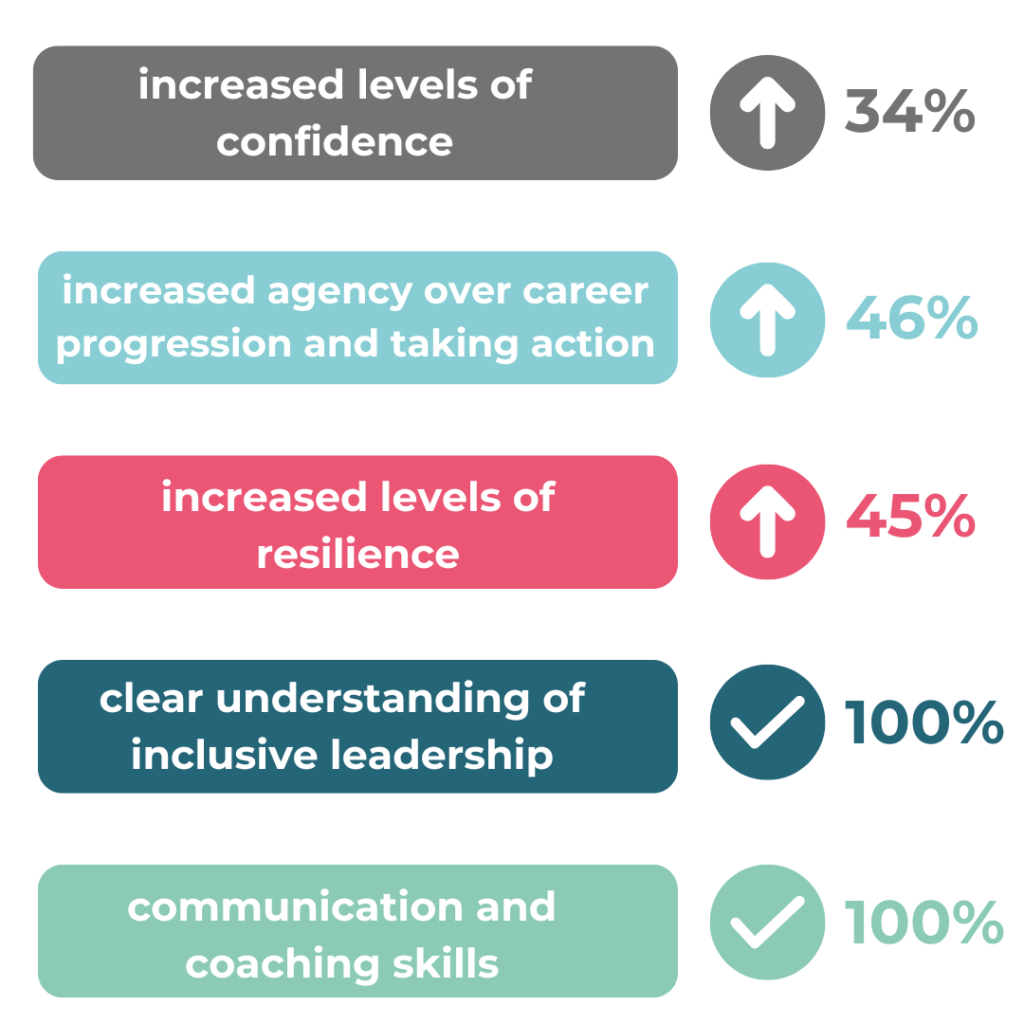The Next Generation
Right now, millions of Gen Z students are entering the workplace as new talent. Whether they are graduates, apprentices or straight from sixth form or college, they already make up more than 20% of the current workforce.
Gen Z is the age group born during the late 1990s through to the early 2000s. As they are entering organisations, they are bringing with them an exciting, fresh, and innovative set of skills that are integral to the current and future success of every company. But currently, almost every employer is struggling to retain and support their next generation workforce, resulting in trends like ‘Quiet Quitting’ and ‘Loud Quitting’ making headlines over the past couple of years.
At Inclusive Futures, we have supported over 4,000 students and graduates since 2020. This, teamed with our experience and insight from Executive and Leadership Coaching in the corporate world, gives us a unique view of the strengths and challenges facing this next generation workforce and their employers.
In this article, we’re sharing how you can best support your new talent, so they not only want to stay within your company but also are excited to progress and inclusively lead by example in the future.

Create space for real freedom of expression and authenticity
Employees and graduates who were under 18 as Covid hit, had more freedom to develop a strong identity and sense of self as a direct result of being stuck between four walls for such a length of time in lockdown. Being sat behind a screen for upwards of 7 hours a day, meant that young people were able to more confidently express themselves using language, avatars and style. And this has been relevant both on and off-screen. When younger people have been able to find their confidence and express their personal preferences via a virtual world, this is then more likely to translate into the real world too.
“In a virtual world, [young people] can tune into the type of person they truly want to be without any physical or environmental factors at play. It’s an escape, almost, a blank canvas with unlimited possibilities.”* [Source: Medium]
When we can show up to work as our authentic selves, we are not only more productive, but happier and more innovative as well. Ensuring that your workplace encourages and celebrates differences is key to not only attracting, but also engaging and retaining new talent. We should be prepared to see more differences, more diversity and more freedom of expression from a new workforce. Encouraging and celebrating these differences is is key to a happier, engaged, and more motivated workforce across all generations.
Read our 4 Ways to Lead by Example article, for some easy tips on how to encourage and celebrate these differences meaningfully.
Ask more questions and really hear the answers
We know that Gen Z have an abundance of game-changing ideas that are going to positively shape how our world looks for future generations. To truly nurture our early careers workforce to lead and to make lasting change, we must be open to asking more questions and really taking on board what the answers are.
This goes further than a staff engagement survey or temperature check that helps your organisation gauge how every employee is feeling. This is about every established employee really acknowledging that they may not know all, or the best answers in discussions and team meetings. It’s about asking every person for a contribution, regardless of their level of experience and opening our minds that great innovation and ideas can come from anyone at any level.
Here are a few great questions to inspire thinking and innovation from all your employees:
- If time were no object, what could we achieve?
- What assumptions are we making that may be holding us back?
- What are you aware of now, that you weren’t aware of 3/6/12 months ago?
As a “leader”, adapting to a coaching style of management is a great way to learn how to ask more questions like this. If this is something you’re interested in, our Coaching Skills Workshops are an excellent place to start.
Think about, and be open to, adapting your communication styles
There’s a reason that Gen Z are the least likely to answer a phone call or feel comfortable talking on the phone. The immediacy of this type of communication doesn’t allow for thought-through responses, contributing to them feeling put on-the-spot and at risk of saying the wrong thing.
We have spoken to students who are petrified of walking into a pub to ask if there are any jobs going, or who would rather not turn up to a new job than ring their new employer to ask what to wear on their first day. This kind of discomfort with unplanned communication is causing Gen Z to shy away from difficult conversations with managers. Young adults from low socioeconomic backgrounds are also less likely to have had opportunities to practice this type of communication in scenarios that their more privileged peers can, affecting how they might be perceived or their beliefs about how others are perceiving them.
We all have an obligation to better support some young people to feel more comfortable in these face to face scenarios. Instead of just forcing it from the offset, though, we can think about what types of communication could help them feel more comfortable. We can and should adapt and build on the practices we take for granted.
For example, instead of always demanding a face to face or virtual weekly management meeting, could you incorporate others ways of communicating like WhatsApp or Messager check-ins?

Build more experiences into the fabric of new roles
It seems like a long time ago now, but we are going to see the ripple effects of Covid for years to come. Covid starved young people of in-person experiences. Increased screen time and homeworking has meant that, even now post-Covid, real life experiences are becoming less frequent. The workplace is now one of the key places in which we can experience new things and meet a range of new people.
So, think about the ways that you can build interesting experiences into the fabric of your office time, to help employees to connect, learn more about each other and share in a culture that is perhaps at danger of being lost.
It could be something as simple as heading outside to grab a coffee for your regular team meeting or one-to-one. It could be inviting colleagues to an after-work event or something at lunch time. And it could also be inviting your younger staff members along to networking events or a senior team meeting, so they get a feel for how to interact with colleagues at different levels and in different situations. Team-building is a really important aspect of this, and having these sessions planned really helps. When all employees know when their team is getting together for something fun, or for strategic work, they can look forward to it in advance.
But please remember not to focus everything around evening events and alcohol. Not only is it not inclusive for many due to religion reasons or home responsibilities, but a large proportion of Gen Z choose not to drink alcohol.
Share the "why" behind your decisions
This approach often goes against the grain of the ways in which we (Millennials and previous generations) have traditionally been directed within organisations we’ve worked.
In many traditional industries, the more senior you are, the more authority you have to direct a team without explaining your reasoning. And whilst it’s absolutely true that if you’ve fairly worked your way into a senior position, you will have the experience and insight that means your decisions are thought-through and strategic. The last few years, however, have highlighted to Gen Z that some authority figures make decisions that just don’t seem to follow any logic or sense (such as lockdown exam grades, governmental decisions on climate-change, for example).
As a values-led generation, our new talent want to know that the workplaces they’re in are aligned to who they are as individuals. Try and think about why you are asking your staff to do something or why your company has chosen a certain strategy. What values might these decisions align or clash with? This is something that will help all employees, not just new ones, to really feel part of, and want to contribute towards, the bigger goals of your company.
Contract once. Contract again. And re-contract regularly
A contract, in this instance, is a mutual understanding between two parties: a manager (employer) and their new employee. Generally, every new employee is given their job specification, objectives and key performance indicators when they start. Which is often where we leave things.
Contracting goes further than this. As coaches, we always contract with our clients and students before we start so that everyone feels like they’re starting on the same page. And as employers, we also do this with any new employee so there is a common language and framework for both employer and employee to refer back to, if things don’t feel or look right.
A contract and a contracting conversation is informed, contributed to and agreed on by both parties. Things a contracting conversation should include are: clarity around expectations; an understanding of how to communicate with each other; when to ask for help; what your role as their manager looks like; how to correctly word an email internally and externally; how long to take a lunch break for; when and how to call in sick; what to wear in the workplace; expectations for flexible working… essentially, everything! Once a contracting conversation has been had, and agreements made by both parties, it is so easy to revisit if things look like they’re deviating. And this can also help with giving feedback or approaching difficult conversations – for both sides.
When we have been in the workplace for a length of time, it can be easy to forget how much we know about the culture and expectations. New employees don’t know all the things we do, and so we need to offer them some help.
Time and time again we are seeing a disconnect between what employers expect of their new talent, and what that new talent can actually do. And, again, a lot of our younger workforce did not get to build their work experience in the way that previous generations have, so there is a lot of workplace nuances that they might not have experience of yet.
Which of these tips would you like to start?
And which of them are you already doing?
If your organisation is finding that retention of new talent is currently a struggle, then we’d love to help you find the right solution that works.
Our programmes improve employee confidence (34% increase), resilience (46% increase) and motivation (45% increase).
We help teams and individuals to improve their communication, build inclusive environments and increase their impact across multiple areas.
Learn more about how our Next Gen Programme will support your staff.
Or, if you’re ready to get started, get in touch with us! You can fill in a contact form here or just email us at hello@inclusivefutures.co.uk.








